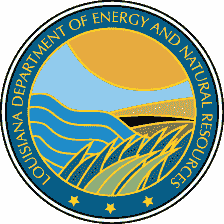Should Everyone Conserve Gasoline?
Yes. This fall, President Bush called on Americans to conserve gasoline by driving less and issued a directive for all federal agencies to cut their own energy use and to encourage employees to use public transportation.
"We can all pitch in," Mr. Bush said. "People just need to recognize that the storms have caused disruption," he added, and that if Americans are able to avoid going "on a trip that's not essential, that would be helpful."
What can I do?
As you go about your daily activities, follow these tips to use gasoline more efficiently.
Consider These Fuel Conserving Tips!
- Keep your car properly tuned up; save approximately 4% more fuel. Replacing a faulty oxygen sensor can save you as much as 40 percent.
- Keep air filters clean to improve mileage; up to 10%.
- Keep tires properly inflated; up to 3-6%. This extends tire life and safety, too!
- Use the manufacturer's recommended motor oil grade; 1-2%. Look for "Energy Conserving" on the API performance symbol to ensure friction-reducing additives.
- Curtail aggressive driving; up to 33% on the highway and 5% in town. Avoid jack-rabbit starts; instead choose slow acceleration from a dead stop.
- Obey the speed limit; up to 7-23%, as gas mileage degreases rapidly above 60 mph. Every 5mph you drive over 60 is equivalent to paying an extra 7%!
- Use your vehicle's overdrive gear option when appropriate to reduce engine speed, save gas, and decrease engine wear.
- Use cruise control; cut fuel consumption by keeping a steady speed on highways.
- Pack lightly when traveling; you'll expend 1-2% more per 100 lbs. Also avoid transporting items on your roof.
- Avoid idling, which gets 0 mpg. Larger engines typically waste even more gas at idling than smaller engines.
- Consolidate errands; plan your routes carefully to drive fewer miles.
- If you own more than one vehicle, drive the one that gets better gas mileage!
Consider Alternatives to Driving!
- Walk or bicycle-get your daily exercise and save money.
- Consider public transportation. The American Public Transportation Association web site lists local public transit information that is listed by parish and city
(URL: http://www.apta.com/links/state_local/la.cfm). - Consider telecommuting (working from home) or staggering your work hours, if your employer permits.
- Take advantage of carpools and available ride-share programs. Sharing your commute with others cuts weekly fuel costs, reduces wear on your car, and may allow you to use less-congested High Occupancy Vehicle (HOV) lanes [Note: Louisiana does not currently have HOVs]. HOVs, or carpool lanes, are reserved for the use of carpools, vanpools and buses. They are typically located next to regular, unrestricted, lanes. HOV lanes enable those who carpool or ride busses to bypass traffic in the adjacent general purpose lanes. For more information on HOVs, visit the U.S. Dept of Transportation Federal Highway Administration web site (URL: http://www.ops.fhwa.dot.gov/freewaymgmt/hov/index.htm).
- Learn more about Demand-Side Strategies, those designed and implemented by organizations with a role to play in mitigating traffic congestion, including state/regional/local governments, employers, special event managers, etc. Organizations frequently tailor packages of both general strategies and targeted strategies to facilitate the most appropriate blend of efficient traveler choices. Read more: http://ops.fhwa.dot.gov/publications/mitig_traf_cong/.
Renting or Buying a Vehicle?
- When renting, ask for a model that gets better fuel economy.
- When buying a new vehicle, think high gas mileage. For more information about fuel-efficient vehicles, visit the Department of Energy website
(URL: http://www.fueleconomy.gov). - Learn more about energy-efficiency tax credits for fuel-efficient vehicles…
- Beginning 2005, a $2,000 federal tax deduction is available for purchasers of hybrid-electric cars.
- Beginning January 1, 2006, the new Energy Policy Act of 2005 provides a federal tax credit of up to $3,400 for a hybrid-electric car purchase.
Considering the Purchase of an Alternative Fuel Vehicle?
- Learn more about Louisiana alternative fuel vehicle incentives and laws: Louisiana Alternative Fuel Vehicle Incentives and Laws
- Did you know that Louisiana provides an income tax credit worth…?
(URL: http://www.dnr.louisiana.gov). - Learn more about federal programs that promote the use of alternative fuels. Incentives and regulations are available on the U.S. Department of Energy Alternative Fuels Data center web site
(URL: http://www.eere.energy.gov/afdc/progs/fed_summary.cgi?afdc/US).
For more information consult http://www.fueleconomy.gov, a web site oriented towards fuel economy, vehicles and technologies, as well as fuels, fuel prices, tax incentives and the environment. The site was compiled by the U.S. Dept of Energy and the U.S. Environmental Protection Agency.
